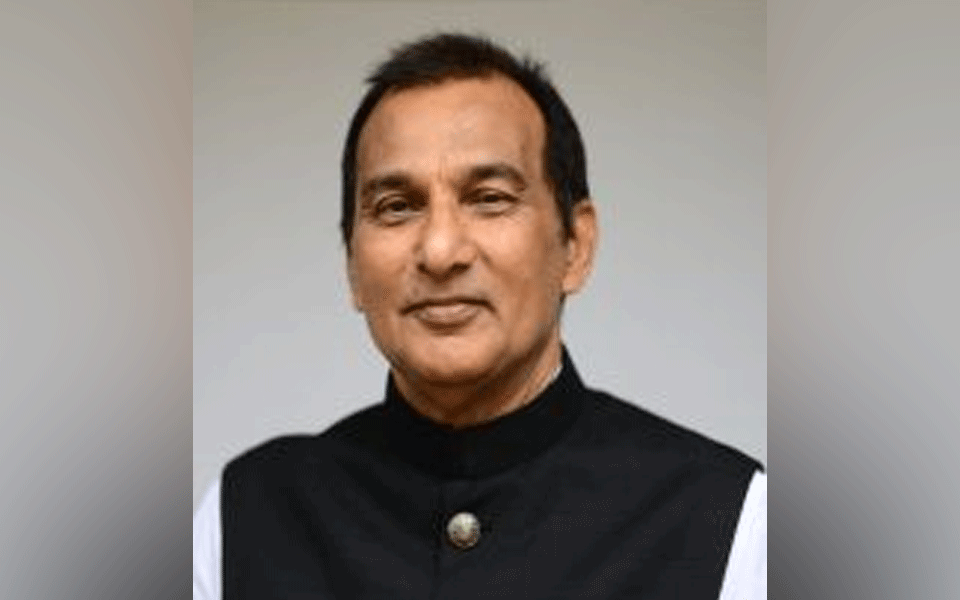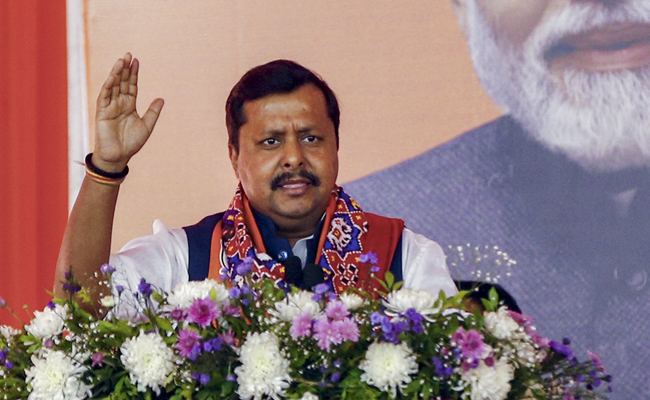Mangaluru, August 08: The prestigious Yenepoya University of Mangaluru has decided to start a Post Graduate Diploma in Applied Islamics course from this academic year.
The course is the first of its kind in the world as its main focus will be on Applied Islamic studies along with traditional subjects like Islamic Theology and Islamic History with Arabic, English and Computer Sciences.
A press statement from the university said that Applied Islamics refers to the study of the application of Islamic Principles in the modern fields of knowledge like law, natural sciences, health sciences, social sciences and philosophy which consists of the analysis of modern theories in different fields in the light of Islamic principles and the development of alternative terminologies, definitions, methodologies, indices, programmes, policies, models and paradigm consistent with Islamic teachings, the statement said.
Inauguration on August 9
Noted Islamic scholar, former Rajya Sabha Member and Jamiat Ulama-I Hind general secretary Maulana Mahmood Madani would inaugurate the PG Diploma in Applied Islamics course at Yendurance zone of the university on August 9 at 10 am. Former union minister K Rahman Khan would be present as the chief guest and Vijayapura Al-Ameen Medical College Chairman Dr Ziaulla Sharief would be the honorary guest on the occasion.
Yenepoya University Chancellor Y Abdul Kunhi would preside over the programme, said university vice chancellor Dr M Vijay Kumar and university Islamic Studies and Research Centre head Dr Javed Jameel.
The topics to be covered in the course are:
- Modern World Order: Philosophy, forces, objectives and impact
- Systematic study of Quran- Faith, Philosophy, Constitution, the System, the history of confrontation between the right and wrong.
- Islamic paradigm hearing
- Islamic Economics
- Islamic political structure
- Islamic legal system
- Islamic social system
- Islam and natural sciences
- Empowerment of Indian Muslims
- Interfaith and national and international harmony
- Epistemology and ontology: Islamic Perspectives
For the first year, it has been decided that 15 students will be enrolled.
Yenepoya University has fixed a 10200/- per month as fee per student per year scholarship to cover up some of the expenses of the course. This will include their stay and food at the University hostel. For day-scholars, the monthly fee will be Rs. 2600/- The Advisory Body of the Islamic Studies of the University has already decided to sponsor 8 students. Offers of sponsorship for more students from individuals/organisations are welcome.
For details, please contact : doctorforu123@yahoo.com, www.yenepoya.edu.in
Applied Islamics : Y. Abdulla Kunhi
The Postgraduate Diploma in Applied Islamics is a unique course which will focus on Islamic analysis of the scientific and social developments in the modern world.
The central focus of this new program is to promote academic and research programs in Islamic subjects, especially Applied Islam, which in turn will help in developing harmonious relations with other religions and religious activities, and contribute towards making the world cleaner, healthier and more peaceful.
The Islamic Chair is planning many research and academic activities. The ultimate aim is to establish an International Centre/Institute of Applied Islamics.
- Y Abdulla Kunhi, Chairman of Yenepoya University
Let the Truth be known. If you read VB and like VB, please be a VB Supporter and Help us deliver the Truth to one and all.
What happens when a country at war decides to attack not soldiers, but the basic things people need to survive? That is exactly the fear right now as the Iran-America war keeps getting worse day by day.
We all know that bombs and missiles are dangerous. But what many common people do not realise is that modern wars are not just fought on battlefields anymore. They can be fought by cutting off your drinking water, shutting down your banks, or crashing your airport systems. And that is the terrifying direction this war may be heading.
Let us understand this simply. After America and Israel launched massive air strikes on Iran, killing its Supreme Leader Ayatollah Ali Khamenei in the very first attack, Iran hit back hard. It fired hundreds of missiles and drones at nine countries. It killed American soldiers, British troops were narrowly saved, and civilians in Israel and Gulf nations lost their lives. Iran even attacked a British airbase in Cyprus. So the war has already crossed many borders.
But here is the really scary part. Iran may now go after something much more dangerous — water desalination plants. Now, you might ask, what is a desalination plant? In simple words, it is a factory that takes salty sea water and converts it into clean drinking water. In the Middle East, where there is very little natural fresh water, these plants are like lifelines. Without them, millions of people would have nothing to drink.
Just imagine how serious this is. Kuwait gets almost all its drinking water — 90 percent — from desalination. Oman is not far behind at 86 percent. Even a massive country like Saudi Arabia depends on these plants for 70 percent of its water, and the UAE for 42 percent. Now picture what happens if Iran fires missiles at these plants. Entire cities could run out of drinking water within days. According to leaked American diplomatic messages from 2009, if just one major plant in Saudi Arabia was destroyed, the country might have to evacuate its own capital city Riyadh within just one week. One week. That is how serious it is. And these plants are easy targets. They are big, they sit out in the open, and they cannot be hidden or moved. A few well-aimed missiles, and lakhs of families could be left without water.
But water is not the only weapon Iran might use. There is another kind of attack that most people do not even think about — cyber attacks. You see, in today's world, almost everything runs on computers. Your bank, your hospital, your airport, your electricity supply, your government offices — all of them depend on computer systems and the internet. A cyber attack means someone sitting thousands of kilometres away can crash all these systems without firing a single bullet.
Iran has done this before. In 2012, it carried out a massive cyber attack against Saudi Arabia's oil giant Aramco and Qatar's RasGas. Those attacks caused serious damage to their computer networks. Now, groups linked to Iran's Revolutionary Guards have already threatened to do this again. A man named John Hultquist, who works with Google's threat intelligence team, has confirmed that these groups are getting ready.
One common type of cyber attack is called a "denial of service" attack. Think of it like this — imagine a narrow road that can handle only 100 cars at a time. Now someone sends 10,000 cars onto that road all at once. What happens? The road gets completely jammed and nobody can move. That is exactly what hackers do to websites and computer systems. They flood them with so many fake requests that the system crashes. Banks stop working. Airport screens go blank. Power grids fail. All without a single bomb being dropped.
This is what makes this war different from any war we have seen before. It is not just about armies and tanks anymore. It is about attacking the basic systems that keep normal life running — water, electricity, internet, banking. The common man sitting in Dubai or Riyadh or Doha, who has nothing to do with this war, could suddenly find his tap running dry or his bank account frozen.
Wars in the Middle East have always pulled many nations in. But this one has missiles flying in more directions and across more borders than ever before. And if Iran decides to go after water plants and computer systems, the real victims will not be soldiers. They will be ordinary families just trying to live their daily lives.
That is the bitter truth of modern warfare. The battlefield is no longer far away. It is right inside your home.
(Girish Linganna is an award-winning science communicator and a Defence, Aerospace & Geopolitical Analyst. He is the Managing Director of ADD Engineering Components India Pvt. Ltd., a subsidiary of ADD Engineering GmbH, Germany.)
Disclaimer: The views and opinions expressed in this article are solely those of the author. They do not necessarily reflect the views, policies, or position of the publication, its editors, or its management. The publication is not responsible for the accuracy of any information, statements, or opinions presented in this piece.





